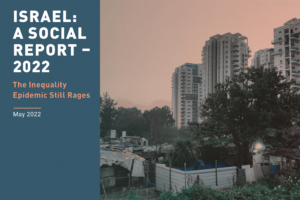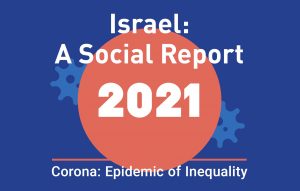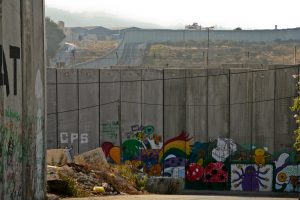While the Knesset prepares to pass the national budget for 2024, the question of a rising defense budget and dwindling funds for social services are at the top of the agenda.
A few weeks ago, the political arena was roiling. The background: the Knesset debate over the first and second readings of the proposed revised national budget for 2024. The issue: coalition agreement monies totaling an additional NIS 15 billion for ultra-Orthodox educational institutions, to be paid out over a period of two years. An important issue, without a doubt, as it reflects the corruption rampant in the corridors of Israel’s present government, as well as the political weakness of its prime minister.
Rising defense costs
Still, this is not the main problem with the latest budget proposals. The main problem is what appears to be a limitless increase in the total budget for defense. The 2024 defense budget is slated to increase over that of 2023 by NIS 55b. Thus, together with the monies provided by US assistance, this allocation is slated to amount to the considerable sum of NIS 125b.
But that is not all: after the war has been paid for, the talk is of a permanent annual increase to the defense budget of NIS 20b. Indeed, the Finance Ministry mentioned the figure of NIS 20b., while the Defense Ministry demanded an annual increase of NIS 60b.
In light of these amounts, what needs to be said to those who are up in arms – and justly so – against the coalition payments, “It’s the defense budget, stupid.”
The increase to Israel’s defense budget is based on the assumption that the main response to the Israeli-Palestinian confrontation in general and to hostilities originating in Gaza specifically needs to be military. This is the background of the apparent readiness to give the IDF whatever it asks for.
The future of the war in Gaza
However, there are questions that need to be considered, such as does Israel really intend to continue fighting for the next four years? Does Israel really intend to deal with the Palestinians by military means only? Are there really no other options?
These questions are important because they present the size of the defense budget as one horn of a dilemma: Israel does not have the means to provide both a greatly enlarged defense budget and better social services. If the defense budget increases, the budget for social services decreases, and vice versa.
A good example of this dilemma can be seen in the following. According to Finance Ministry figures, in the decade between 2012 and 2022, the budget for social services – health, education, higher education, social security, and social welfare – increased more than the budget for defense.
The relatively slow growth of the defense budget enabled Israel to devote larger sums to its social services. The latter grew from NIS 120.7b. to NIS 210.9b. – an increase of some 70%. In contrast, the defense budget grew by 10% – from NIS 68.2b. to NIS 75b.
In retrospect, it appears that those years represented a period of grace, which began with the 2011 social protest slogan, “The people want social justice,” and ended with the government’s successful handling of the coronavirus pandemic.
The need to invest in Israeli social services
The need for a massive investment in Israel’s social services is well-known. On most socio-economic indicators, Israel is located at the bottom of the OECD scale. The situation is such that even if there are no budget cuts, the services suffer from a lack of man – and mostly woman – power, as relatively few professionals are willing to work for the low salaries offered.
And now the revised budget for fiscal 2024 posits a large increase for the defense budget, thus decreasing the budget for social services. And this is happening during a time when the war itself has been creating new needs every day – assisting hundreds of thousands of displaced persons, hundreds of thousands of unemployed persons, and thousands of small businesses with no way of making a living.
The situation may arise in which when demobilized soldiers ask for assistance and rehabilitation, they are informed that “the money was depleted by the war.” What may happen is that next to all the placards declaring, “Together to Victory,” there will be others lamenting, “No more Together. Everyone for themselves.”
// The article was originally published in English in the Jerusalem Post






